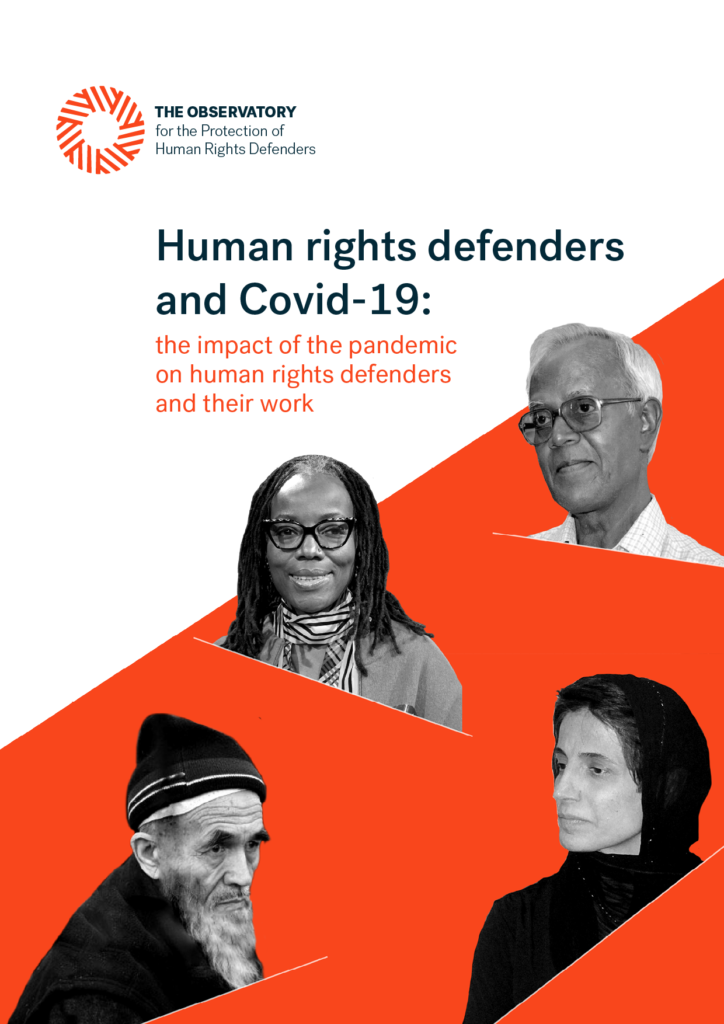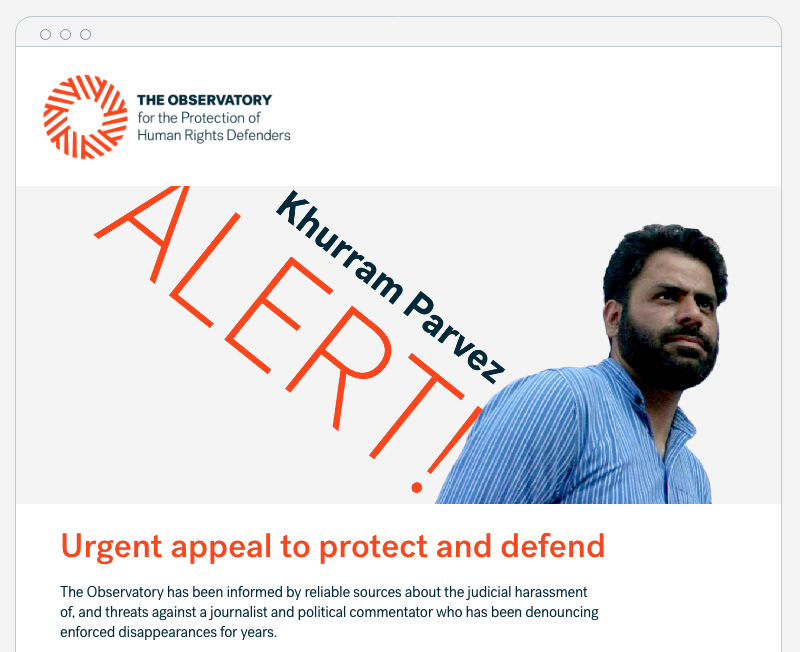Methodology
The present report is mostly based on the alerts published by the Observatory for the Protection of Human Rights Defenders, a partnership of FIDH and OMCT, since the beginning of the pandemic, in early 2020. The individual cases outlined throughout the report have been updated with follow-up information, to the extent possible.
In this framework, several trends of repression have been observed over the past couple of years:
- Abusive restrictions on civic space
- Criminalisation of human rights defenders critical of the management of the pandemic
- Arbitrary detention of human rights defenders despite acute risk of infection in prison
- Threats and killings of human rights defenders
Abusive restrictions on civic space
Angola, Cambodia, Guatemala, Hungary, Morocco, Niger, Thailand, Turkey, Venezuela
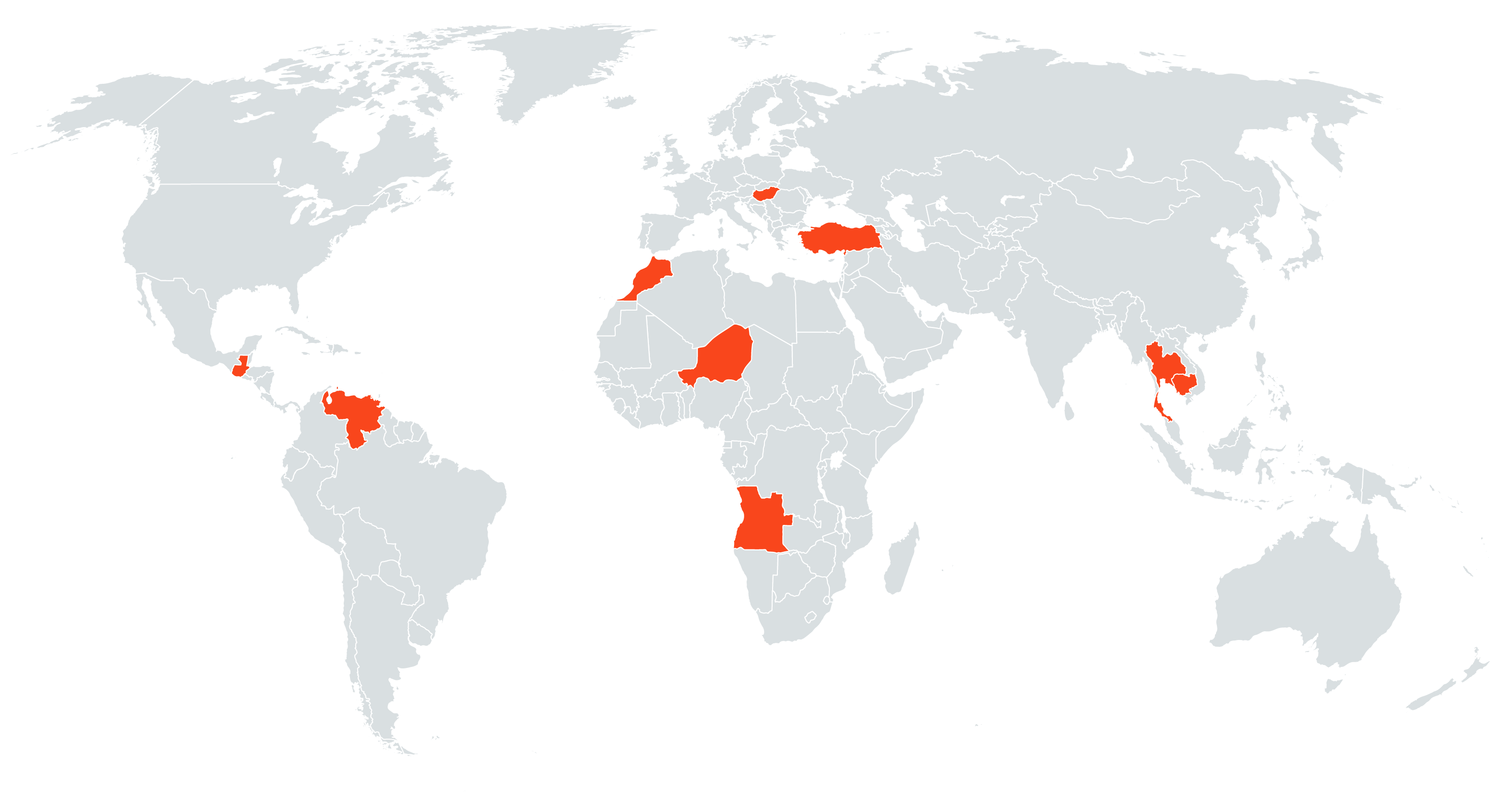
Criminalisation of human rights defenders criticising the handling of the pandemic
Algeria, Azerbaijan, Belarus, Cambodia, China, Cuba, Egypt, Guatemala, India, Iran, Kazakhstan, Niger, Peru, Tajikistan, Thailand, Turkey, Uzbekistan, Venezuela, Zimbabwe
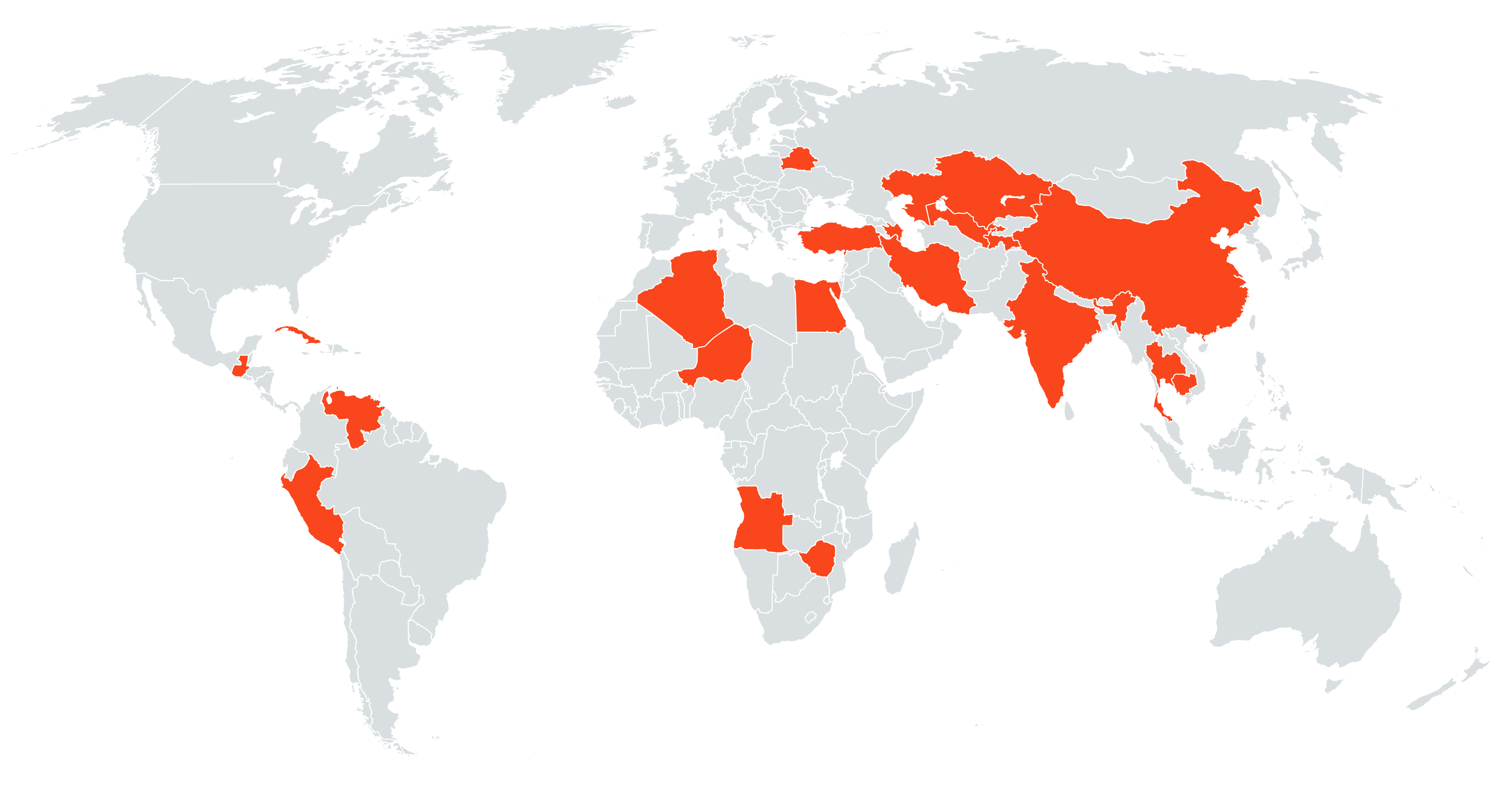
Arbitrary detention of human rights defenders despite acute risk of infection in prison.
Algeria, Azerbaijan, Bahrain, Bangladesh, Cambodia, Cameroon, China, Egypt, Honduras, India, Iran, Kyrgyzstan, Mexico, Morocco, Peru, Philippines, Russia, Saudi Arabia, Sri Lanka, Sudan, Turkey, Venezuela
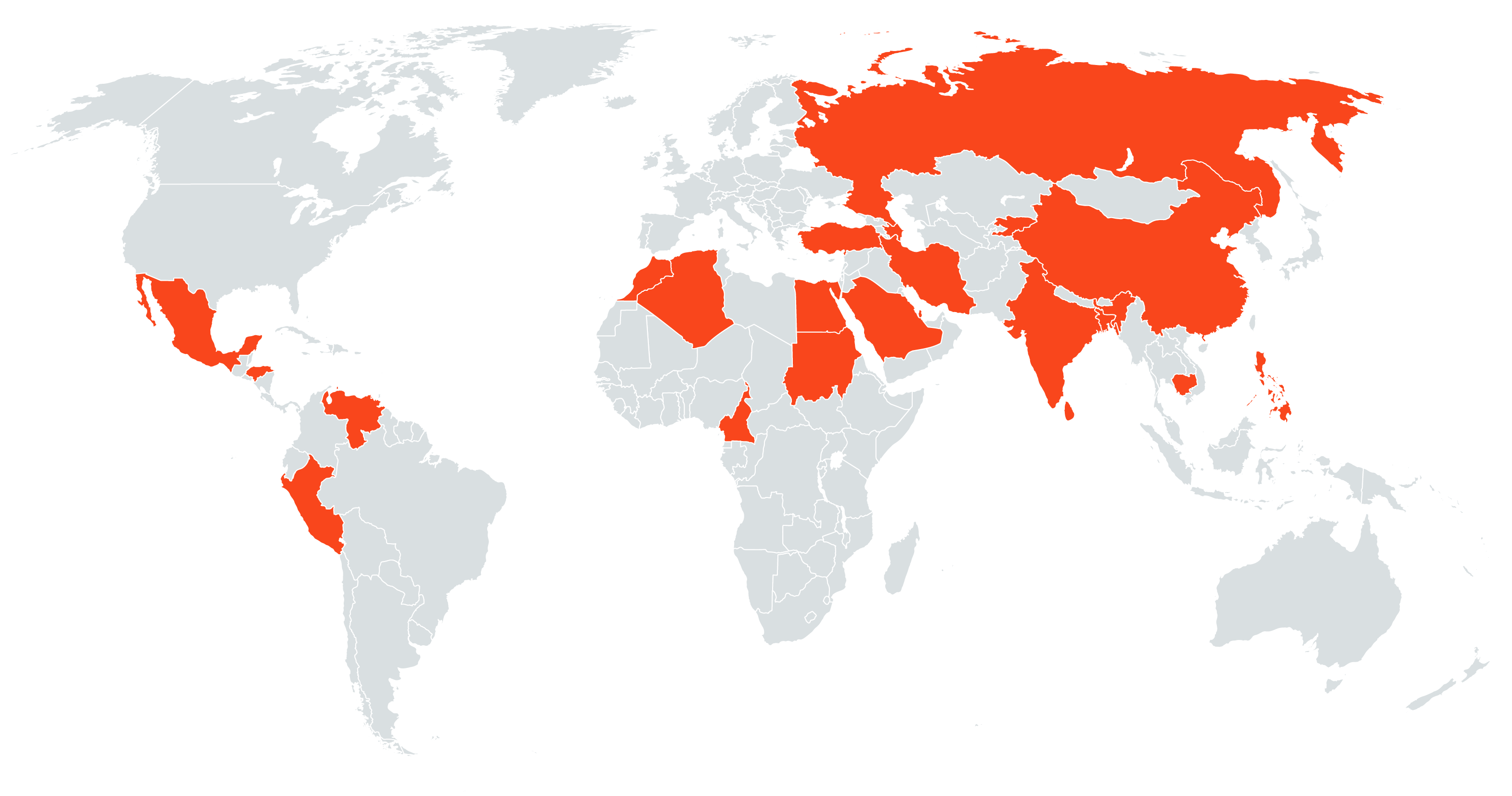
Threats and killings of human rights defenders
Brazil, Chile, Colombia, El Salvador, Guatemala, Honduras, Kazakhstan, Mexico, Nicaragua, Philippines, Venezuela, Zimbabwe
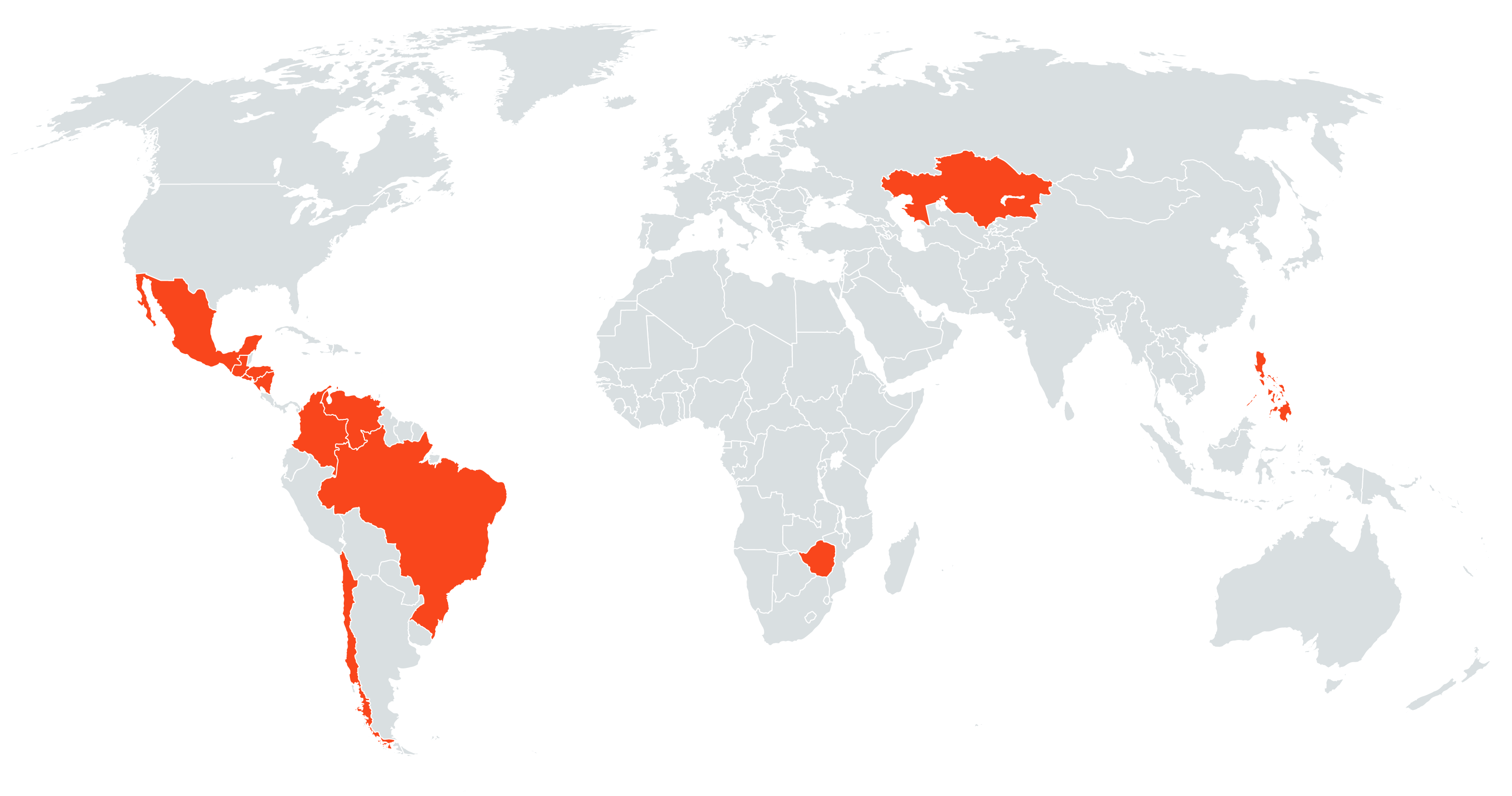
All countries in report
Algeria, Angola, Azerbaijan, Bahrain, Bangladesh, Belarus, Brazil, Cambodia, Cameroon, Chile, China, Colombia, Cuba, Egypt, El Salvador, Guatemala, Guinea, Honduras, Hungary, India, Iran, Kazakhstan, Kyrgyzstan, Mexico, Morocco, Nicaragua, Niger, Peru, Philippines, Russia, Saudi Arabia, Sri Lanka, Sudan, Tajikistan, Thailand, Turkey, Uzbekistan, Venezuela, Zimbabwe
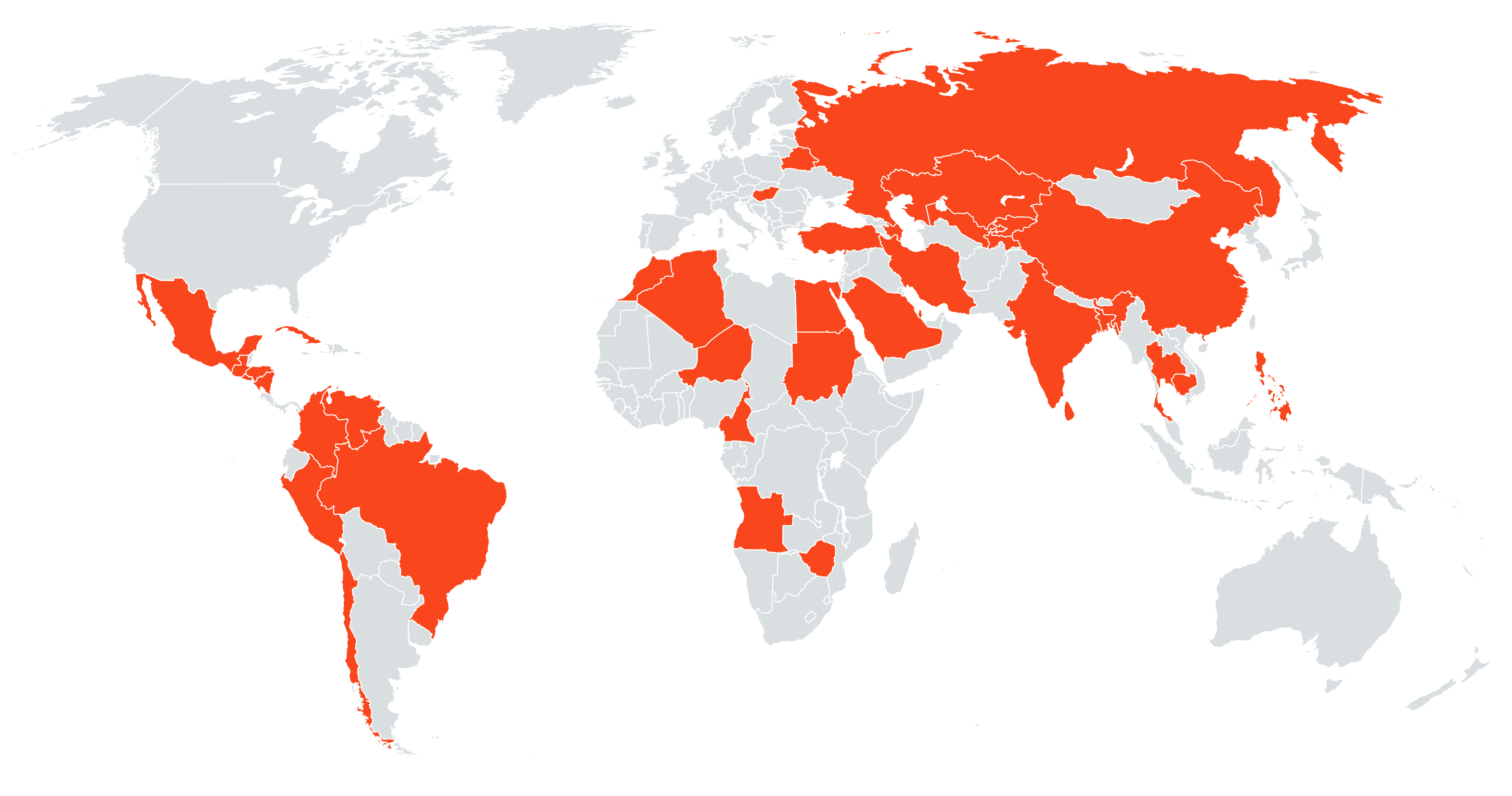
1. Abusive restrictions on civic space
The restriction of access to public space justified by Covid-19 has led to abusive restrictions, namely
- the introduction of increased surveillance measures
- the adoption of legislation granting extensive powers to the authorities
- the sometimes abusive use of these laws to restrict civic space under the guise of the fight against the pandemic.
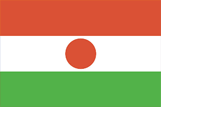
For example, in Niger, the authorities severely repressed an assembly convened by the NGO Turning the Page Niger (Tournons La Page Niger – TLP) on 15 March 2020 to denounce the misappropriation of public funds for the purchase of arms for the fight against terrorism. Law enforcement officials alleged that the assembly had been banned within the framework of the fight against Covid-19, although Turning the Page was not notified of such a ban. Between March 15 and 17, at least 15 people were arrested and detained for “participating in a prohibited demonstration”.
Some of the human rights defenders were arrested, including Moussa Moudi, Halidou Mounkaila and Maïkoul Zodi..
To learn more about their case, you can read section 1 of the report.
Download (PDF)
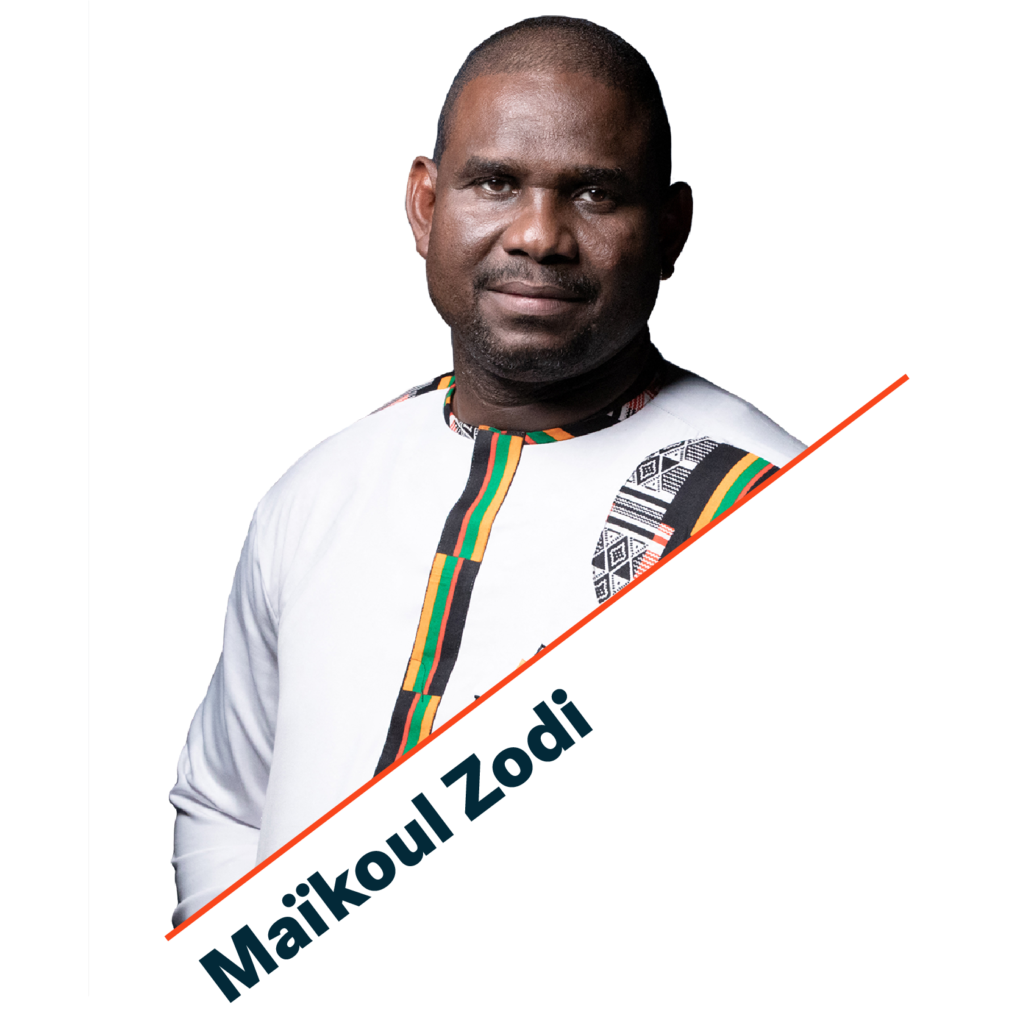
2. Criminalisation of human rights defenders critical of the management of the pandemic
Under the pretext of limiting the dissemination of false information about the virus, some authorities have arrested and harassed in court independent journalists and human rights defenders critical of their handling of the crisis, even closing down some media outlets.

One emblematic case is that of Zhang Zhan, a former lawyer turned journalist, who was arrested in Wuhan on 15 May 2020 after commenting on Twitter about the authorities’ countermeasures to contain the virus. She was sentenced on December 28, 2020, in a two-hour trial, to four years’ detention by the Shanghai Pudong People’s Court, for “picking a quarrel and causing trouble” (Article 293 of China’s Criminal Law). Her detention conditions are disastrous and her health has deteriorated after she went on hunger strike. Under the pretext of health measures, her family is not allowed to visit her.
To learn more about Zhang Zhan’s case, you can read section 2 of the report.
Download (PDF)
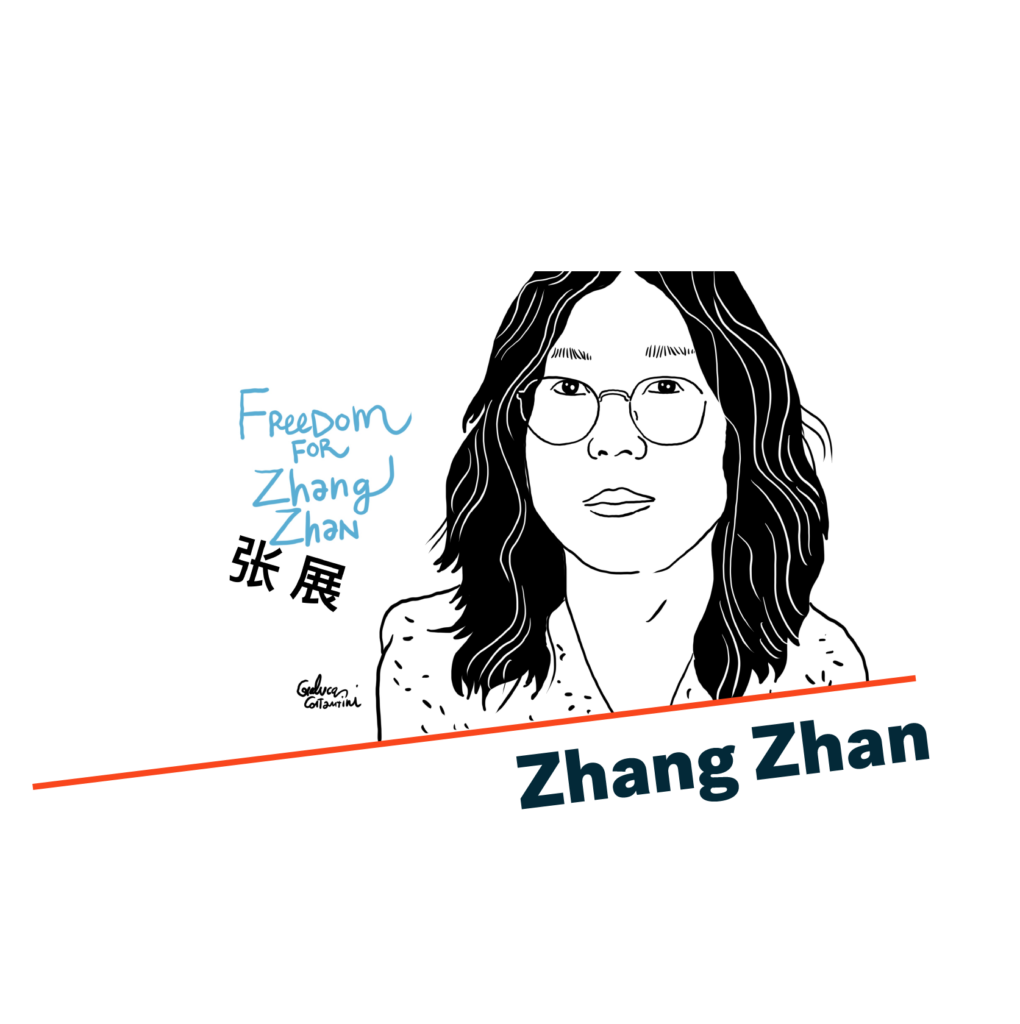
3. Arbitrary detention of human rights defenders despite acute risk of infection in prison
Despite repeated declarations by the United Nations, and waves of mass releases aimed at decongesting prisons to combat the spread of the virus, a large number of human rights defenders held in high-risk environments have not been released. While some have died in prison, states have used the health crisis as an excuse to postpone their trials or keep them in detention.
There have been multiple reports of defenders affected by Covid-19 in detention across the world, sometimes leading to their death.
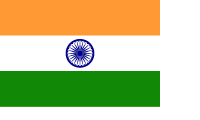
In India, Stan Swamy, who was incarcerated for nine months in the Bhima Koregaon case, which refers to the violences during the bicentenary celebrations of the Bhima Koregaon battle in January 1, 2018, died in custody after contracting Covid-19 due to the lack of effective and timely treatment in jail and the routine denial of bail.
To learn more about Stan Swamy’s case, you can read section 3 of the report.
Download (PDF)

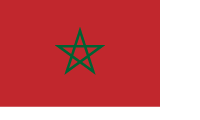
Maâti Monjib is an example of the reinforcement of isolation for political prisoners in the context of Covid-19. On December 29, 2020, Maâti Monjib, historian, journalist, President of the “Freedom Now” association for freedom of expression in Morocco, founding member of the Moroccan Association for Investigative Journalism (Association marocaine pour le journalisme d’investigation – AMJI), was arrested by plainclothes police officers without an arrest warrant. During his detention, Maâti Monjib has had access to his lawyers but was not able to see his family because of the quarantine imposed on all new arrivals in prison in the context of the Covid-19 pandemic.
To learn more about Maâti Monjib’s case, you can read section 3 of the report.
Download (PDF)
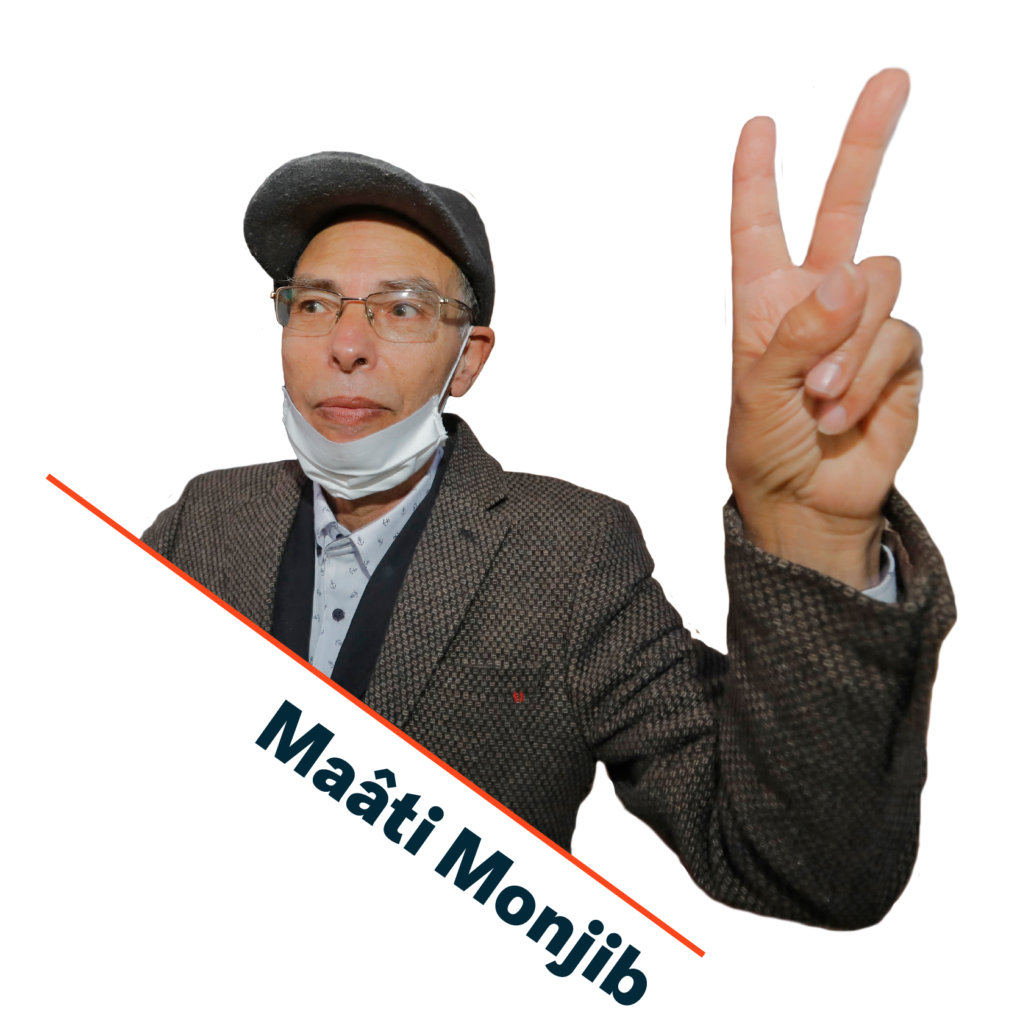
4. Threats and killings of human rights defenders
Confinement, curfews and the general context generated by Covid-19 have increased the vulnerability of human rights defenders already at risk. In countries such as Mexico and Venezuela, violence against defenders has increased significantly
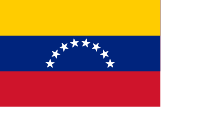
In Venezuela, there was in 2020 a 157% increase in attacks on defenders and civil society organisations compared to the figures for 2019.
Similarly in Mexico, data from the Mechanism for the Protection of Human Rights Defenders and Journalists indicate that between March and June 2020, 141 attacks against human rights defenders and journalists were recorded. Overall, in 2020 a 67% increase in attacks against defenders was recorded.
Four human rights defenders were killed as a reprisal for their human rights work in the few weeks following the beginning of the health crisis: Isaac Medardo Herrera Avilés (on March 23, 2020), Benito Peralta Arias (on March 30, 2020), Juan Zamarron Torres (on April 1, 2020), Adan Vez Lira (on April 8, 2020).
To learn more about the increase in violence, you can read section 4 of the report .
Download (PDF)
Conclusion
The cases studied here emanate from the countries on which the Observatory for the Protection of Human Rights Defenders has been working. The list of countries covered is therefore non-exhaustive. It nevertheless aims to provide an analysis of the mechanisms of repression in times of global crisis.
The cases presented in this report show that human rights defenders have been heavily impacted by the sometimes disproportionate measures taken to respond to the pandemic. Most alarmingly, some states have used the fight against the spread of Covid-19 as a pretext to continue and even increase the persecution of critical voices, at a time when protection systems – both national and international – have been crippled by the restrictions imposed.
The pandemic has provided additional contexts where the latter have been particularly targeted and/or silenced, in total impunity. Far from being limited in time, some measures passed under the guise of the pandemic could have long-term effects on the activity of human rights defenders.
To that end, the Observatory formulates the following recommendations:
Recommendations
To governments:
- guarantee human rights defenders protection and enforce/restore an enabling
environment for human rights work, civic engagement and action; - publicly recognise the crucial role played by all human rights defenders in providing information and addressing the challenges posed by global crises such as the Covid-19 crisis;
- recognise human rights defenders as key stakeholders in decision-making processes related to human rights issues, in the Covid-19 and post-Covid-19 contexts;
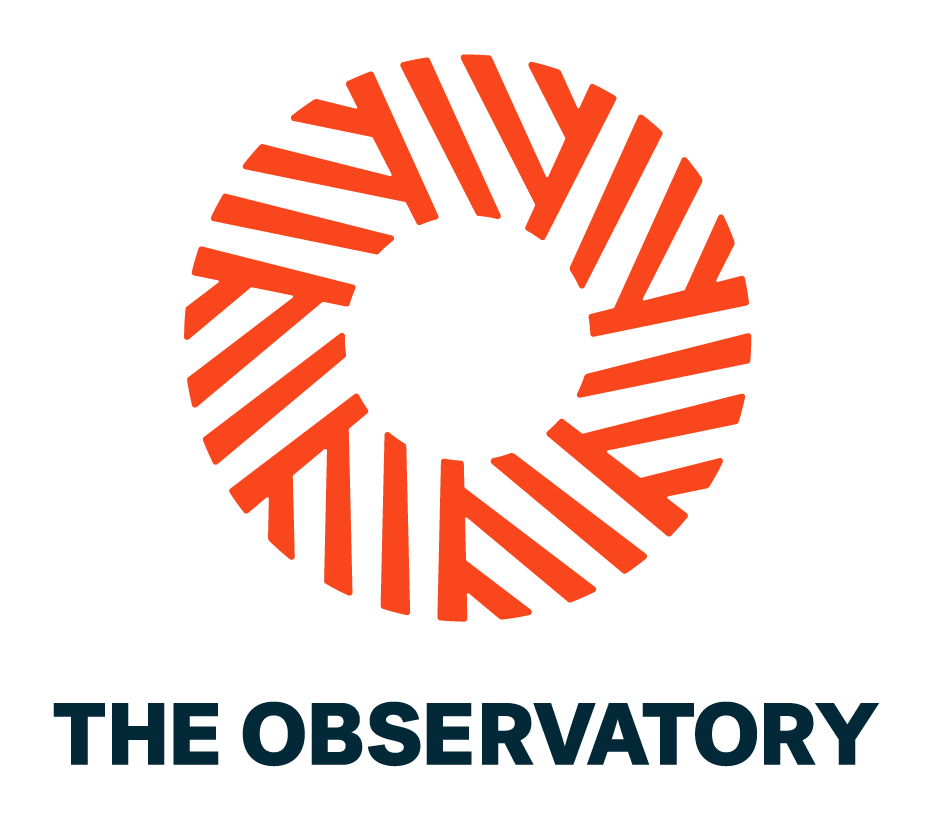
For 25 years this partnership between the International Federation for Human Rights (FIDH) and the World Organisation Against Torture (OMCT) has supported and protected human rights defenders worldwide, so they can protect human rights for all of us.



